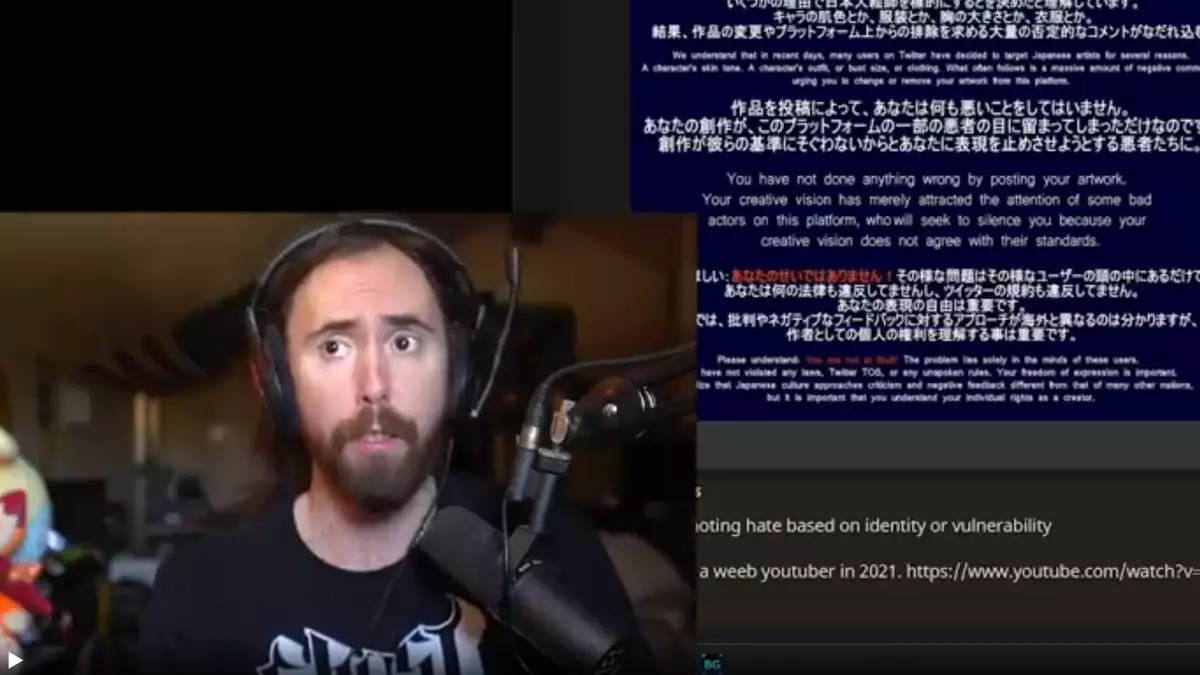The recent incident involving popular Twitch streamer Zack Hoyt, better known as Asmongold, has ignited fierce debates regarding online conduct, accountability, and the lines that can and cannot be crossed in public discourse. Following a livestream where Hoyt made inflammatory remarks about Palestinians, his account faced suspension, highlighting the responsibilities that come with influence in digital spaces. This article seeks to dissect the event and its implications for streaming culture and society at large.
Asmongold’s comments came amidst the backdrop of an ongoing humanitarian crisis in Gaza, where reports indicate a staggering loss of life, disproportionately affecting women and children. In his livestream, Hoyt remarked that he held no sympathy for those suffering, labeling them as “terrible people” deriving from an “inferior culture.” Such statements not only echo deeply entrenched prejudices but also disregard the human suffering that is becoming all too common in discussions around global conflicts. The complexity of the situation in Gaza—a conflict steeped in historical, political, and cultural tensions—demands a nuanced understanding, rather than sweeping generalizations that dehumanize entire communities.
The Violations of Community Guidelines
Hoyt’s remarks did not merely represent a breach of social decorum; they directly contravened Twitch’s community standards, designed to foster a safe and inclusive environment for all users. Twitch explicitly prohibits the propagation of hatred, prejudice, and intolerance, including remarks that express cultural inferiority or promote the subjugation of any groups based on protected characteristics. Asmongold’s comments invited an avalanche of criticism, underscoring the community’s intolerance for casual racism—especially hefty for a figure with significant following and influence.
Such guidelines exist to protect users from harassment and discrimination in a space that has struggled with these issues for years. When public figures employ their platforms to trivialize or dismiss the suffering of marginalized communities, the ramifications extend beyond a single stream; they contribute to a culture that normalizes bigotry. This episode serves as a reminder that, regardless of one’s platform or popularity, accountability remains essential.
In the aftermath of the backlash, Asmongold issued a statement on X (formerly Twitter), expressing regret for his comments. Yet, the nature of his apology raised questions about sincerity. While he acknowledged that his remarks were inappropriate, calling his earlier views “regressive,” many felt that it fell short of a meaningful expression of contrition. In a culture that increasingly demands accountability from those in influential positions, a simple “my bad” does not suffice for many seeking a deeper recognition of the harm caused.
This incident reflects a broader issue within online platforms: the expectation that public figures acknowledge the weight their words carry. With a follower base that can often amplify harmful ideologies, the burden of responsibility intensifies. Genuine apologies require more than acknowledgment—they necessitate an understanding of the impact one’s words can have on vulnerable communities.
The Broader Implications for Streaming and Society
Asmongold’s suspension serves not only as a disciplinary action but also as a pivotal moment for the streaming community and beyond. It emphasizes the urgent need for a collective reevaluation of the responsibilities that come with digital influence. As streaming continues to grow and captures vast audiences worldwide, the content shared on these platforms will inevitably shape societal perceptions and attitudes.
Furthermore, this incident could act as a catalyst for the development and enforcement of stricter guidelines on platforms like Twitch, as they work to create an environment that responsibly moderates harmful content. Whether viewers and fans uphold streamers to a higher moral standard remains to be seen—what is clear, however, is that the community response will shape ongoing discussions on ethics in digital content creation.
The fallout from Asmongold’s racist tirade is emblematic of a larger issue within the realm of online content creation. It underscores an urgent need for accountability, sensitivity, and awareness in public discourse. As streaming continues to thrive as a medium of expression and interaction, all stakeholders—content creators, platforms, and consumers alike—must engage in proactive discussions about the implications of their words and actions. In doing so, they can foster a more inclusive environment that values respect and understanding over division and hate.


Leave a Reply